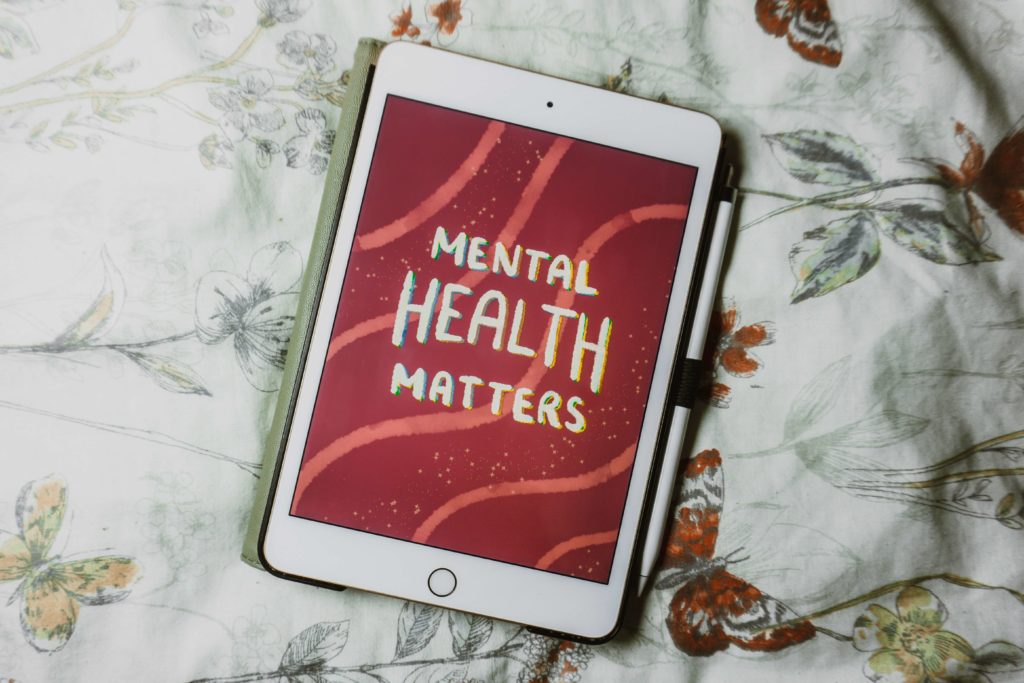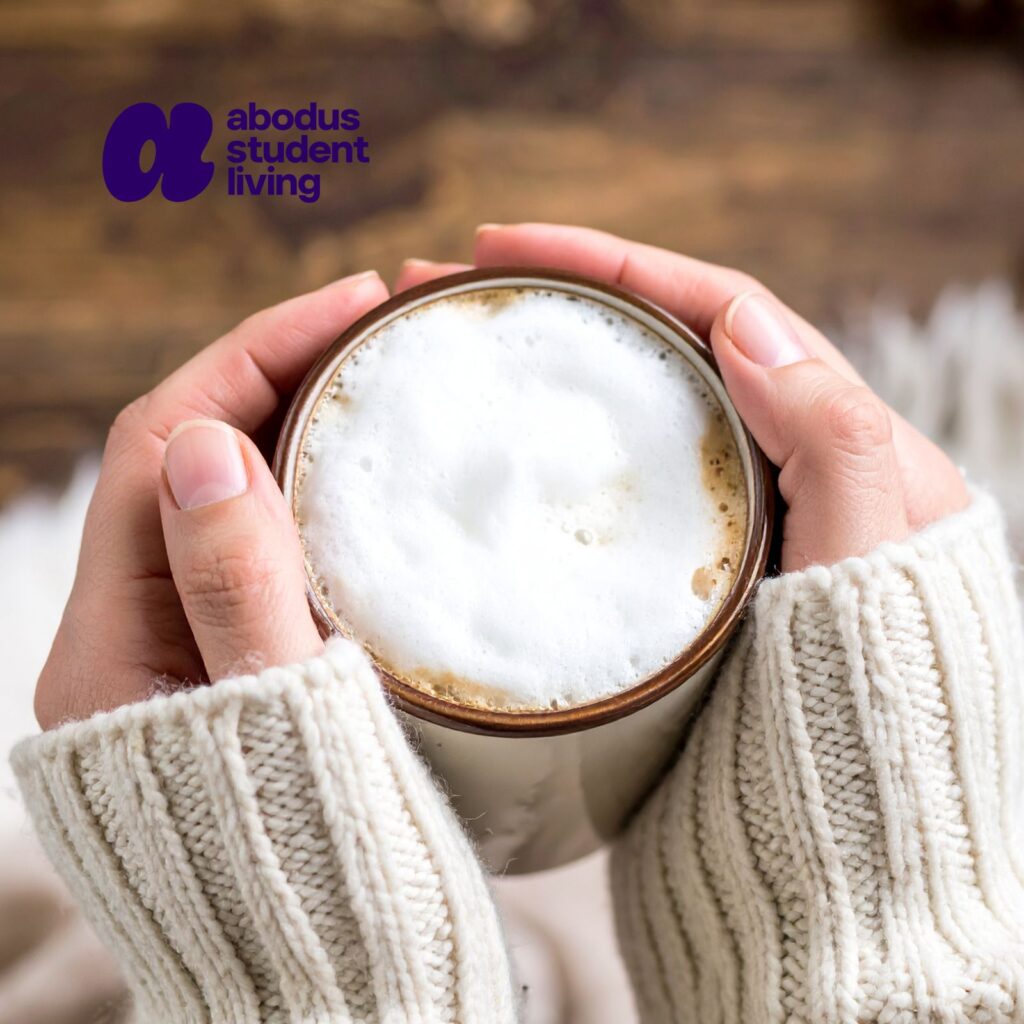What we call anxiety is a normal part of being human. Without it, we would not survive.
It is an evolutionary system which affects our physical and mental capacity in times of danger and informs our behaviour. We go on high alert, hormones are released, our bodies tense and are ready for action, and our brains divert power to more primitive areas. We are primed and ready to find a way to survive.
That was very useful when we were running from predators, but in modern life, the same threat system can be activated when we are safe.
When our system becomes over-primed, when we start seeing or expecting threats where there aren’t any, that’s when anxiety starts impacting negatively our day-to-day existence. It’s like a programme which can be copied across different aspects of our lives: making friends, studying for exams, pursuing our ambitions and dreams.
The good news is that anxiety is manageable, and with insight and some hard work, you can live a life which is not ruled by it. Especially at university, there are many ways of managing student stress.
We’ve created this round-up of some of the most successful approaches to dealing with anxiety as a good place to start to make changes.
As always, remember that your accommodation team is on hand to chat and help you at all times. We care about your well–being and want to make sure that your university experience is the best it can be.
Practice Sitting With The Discomfort
You will probably be aware of lots of Instagrammable and Snapchatable quotes about “Staying Positive”, “Positive Vibes”, and “Thinking positive Thoughts”. While well-intentioned, by applying this, sometimes tyrannical positivity to our lives, we crowd out the legitimacy of all the other emotions that we can be feeling.
It’s okay to feel sad, scared, concerned, or lonely. This is all part of life and necessary for our growth. Learning to sit with anxiety, acknowledging you feel it and, importantly, knowing that it will pass, is a great way to strengthen resilience. It might be useful to think of it as a wave that passes over you and then dissipates.
Perhaps you could practise seeing emotions as clues to aspects of your life that you might need to shine a light on. Times of crisis or difficulty can be very influential in shaping who we are – think of the generation that lived through World War II.
University life comes with its own fair share of challenges, too. But, managing student stress and learning how to cope with the hurdles of demanding lectures and difficult exams can give you the mental skills to take on future endeavours with more confidence.
Dealing With Uncertainty and Managing Student Stress
Anxiety loves uncertainty. You’ll notice that when we experience anxiety, it usually relates to an imagined future. It may have its roots in our past experiences, but the focus is on what is happening in the near or distant future.
People who suffer from anxiety very often overestimate risk and underestimate their ability to cope. The difference between the imagined size of the threat and our sense of helplessness is where anxiety sits.
For example, you may worry about a specific exam that’s fast approaching. What will the questions be? What are the lecturer’s exact expectations? These can trigger feelings of stress and uncertainty.
To help deal with this, it is very useful to understand what you can personally control and not control. If you can control something, then make a plan, execute it and let go of the worry.
If you can’t control it, acknowledge the discomfort of this but let it go either mentally or by writing it down in a worry journal or scheduling a period of time each day which is reserved for worry. This allows you to explore your emotions but within boundaries.
Make a list and divide it into what you can and can’t control. For example:
What I Can Control
- How you prepare for your exam, such as creating a study schedule and reviewing class materials
- Finding the right study environment, whether that’s the university library or your student flat in Leeds, Newcastle or Bristol
- How you manage your time in preparation for the exam
- Prioritising your physical well-being, such as staying hydrated and eating well to give you the energy to study better
What I Can’t Control
- The content and specific questions that will feature in the exam
- Pas performances and marks that might have an influence on your overall grade. Don’t worry about those – you can’t change what’s been done, so just focus on any upcoming assessments.
- People’s expectations or opinions, such as what grade they are hoping you will achieve.
You’ll soon find that there are many things that you can do that are in your power to make this time easier. Focus on these.
“Put down” the things that you have no control over. Stop holding on to them and focus on what you can do.
Reframe Your Thinking
How we think about things affects our emotions and our behaviour, especially when it comes to anxiety.
As mentioned above, it is probably more useful to look at our thoughts not in terms of negative vs positive, being helpful vs unhelpful. When we find ourselves thinking of an unhelpful thought, and specifically when managing student stress, it can be very useful to try and turn it into something more helpful.
For example, “I’m worried about failing my exam” might turn to ”I’m doing my best to pass my exam.”
By reframing our thoughts in this way, we acknowledge how we are feeling, the situation we are in, and we also engage our problem problem-solving skills. This quickly reduces our feelings of helplessness.
Remember we said that anxiety can be triggered by our underestimation of our ability to cope? By changing our thinking into more helpful mode, we start implicitly feeling that we are more in control of how we react and are less a victim of circumstance.
Watch Out For Distorted Thinking
Another way of looking at our thoughts is recognising some of our distorted thought patterns. Some of the ones which might be particularly relevant to this situation are:
Catastrophic thinking – thinking the worst possible scenario;
Fortune telling – forecasting the future with no facts;
Emotional thinking – because it feels bad, it is bad.
When we fall into distorted ways of thinking, it affects how we view the world.
If we tend to catastrophise, then we can quickly take something insignificant and blow it out of proportion. We might not consider the actual reality or the tiny probability of the worst-case scenario happening. Even in a situation which is serious, this kind of thinking will lead us to imagine the worst possible outcome rather than allowing us to engage in more helpful and realistic thoughts.
Fortune telling could take the form of imagining all sorts of reasons for something possibly happening. For example, thinking of reasons why a friend hasn’t phoned back, such as ‘they don’t like me’, ‘they’re off doing something more interesting’, ‘I’m boring’, or ‘they’re offended by something I said’. The chances are that, in reality, they’re just busy with other things.
Emotional thinking could manifest as a niggly feeling that many people get when they are anxious. Because we have this feeling and very often some physical sensations like a butterfly tummy, we use these feelings to inform our thoughts. If I’m feeling anxious, then there must be something wrong.
Meditation
When we are in threat mode, the sympathetic nervous system is triggered – this is where all the flight/freeze reactions take place. Hormones pulse through the body, and we are on high alert for a threat.
When we are in this mode, our parasympathetic system (e.g., the rest & digest system) can’t regain balance. It’s like a switch – only one can be active at a time. This is why so many therapists recommend meditation.
Meditation is not just some in-vogue leisure activity. It helps to strengthen your parasympathetic system so that when you need it, you can access it more readily. It also builds your ability to control focus, which is a great skill for anyone who suffers from anxiety.
Like most things, the benefit is in regular practice. Little and often can really make a difference. There are many apps and YouTube videos on meditation, and having to stay home gives us a great opportunity to try it out.
Focus & Refocus
We can, to a great extent, choose what we focus on. As a demonstration of this put on some music, anything that you like, as long as it has different instruments or layers of sound.
Now try and focus your attention on, say the vocals – stay with that for a few seconds before picking out the beat or perhaps keyboards… You will probably experience the music slightly differently depending on what you choose to focus on.
The takeaway from this is that you can choose where to focus in all aspects of life, and where you focus will affect your perception.
Safe Space Visualisation
If you do find that managing student stress is becoming increasingly challenging and you are feeling anxious, it can be really useful to have a mentally safe place you can access. Close your eyes and think of a place, imaginary or somewhere you’ve been in the past – (preferably not your bedroom). This is a space only for you, no one else can visit here.
Look around you and drink in what you see. What colours can you see, what objects are there, can you smell anything? If you were to touch some objects, what their texture would be? Is there any movement in the air?
Remember this is your safe space. Spend around five minutes looking around. Your mind will potentially wander, that’s ok, just bring it back gently. After some time, come back into the here and now.
You can use this safe place whenever you need to. If you are someone who isn’t able to visualise don’t worry, this can be adapted to focus on other senses such as touch or smell.
Grounding
Grounding is a technique that brings us into the here and now. If we are feeling anxious and perhaps having unhelpful thoughts and worries, by being able to ground ourselves we step out of our minds and into our bodies and this moment.
There are many techniques to do this. A simple online search will bring up hundreds. One of the most popular is the 5,4,3,2,1 technique. Look around the room and find five things you can see. Describe each one, e.g. I can see a chair which is yellow and looks old but comfortable. Do the same with 4 things you can hear, 3 you can touch, 2 you can smell and 1 you can taste.
This is a simple mindfulness exercise that helps to break any spiralling or anxious thoughts by pulling your attention into the moment, not an imagined future.
Compassion
There is no magic wand regarding anxiety and managing student stress, but the techniques outlined above have all proven very successful in helping people recalibrate their worries.
The most important thing is self-compassion. We can all be kind and supportive to friends, but it’s much easier to be harder on ourselves.
If you regularly find yourself saying unkind thoughts to yourself, then ask yourself if this could be a source of your anxiety. If you are constantly telling yourself you are not good enough, then perhaps that might be related to social anxiety. If you wouldn’t talk to a friend the way you talk to yourself, then try to stop.
Self-compassion is a superpower which we all have the potential to use.
If Your Anxiety is Pervasive – Reach Out For Help
The techniques and approaches outlined above can work to manage and recalibrate your anxiety.
However, if you find your anxiety spilling out to different parts of your life (i.e. social occasions, contacting people, worrying so much about exams that you live in a brain fog, being nervous and unsettled for a lot of your days, etc.), then it might be an idea to reach out for help.
There are many organisations and private counsellors who are able to very successfully help you work through your anxiety. They offer online and telephone services that can work wonders for your mental well-being.








